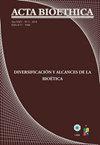审查当前和脱欧后的英国基因技术监管法律框架
IF 0.3
4区 哲学
引用次数: 0
摘要
英国环境、食品和农村事务部(Defra)于2021年1月启动了一项关于基因技术监管的全国性磋商,英国政府借此机会评估公众和科学界对基因编辑在农业和水产养殖中的应用的意见。特别是,咨询寻求考虑基因编辑(GE)是否应该受到与转基因生物(GMOs)相同的监管这一有争议的问题。转基因和转基因产品之间的区别,以及管理它们的法律法规之间的区别,是非常重要的:目前,英国仍然遵循欧盟的限制性方法,即基因编辑与转基因生物一样受到监管。然而,鉴于英国退出欧盟,英国政府似乎愿意重新考虑这种做法,并采用一种新的监管框架,其特点是控制不那么严格。因此,本综述研究了英国和欧盟以及其他相关司法管辖区关于基因编辑和转基因生物的现行法律框架,然后根据科学界和公众对该咨询的不同反应对Defra咨询进行了研究。该论文总结了一些考虑因素,这些考虑因素应该为英国脱欧后提出的框架改革提供参考,以便在科学发展、粮食安全、人类健康和环境之间取得正确的平衡。本文章由计算机程序翻译,如有差异,请以英文原文为准。
Review of the current and post-Brexit UK legal framework on the regulation of genetic technologies
The launch of a nationwide consultation in January 2021 by the UK Department for the Environment, Food and Rural Affairs (Defra) on the regulation of genetic technologies has been used as an opportunity by the UK Government to gauge public and scientific opinion on the applications of gene editing in agriculture and aquaculture. In particular, the consultation sought to consider the controversial question of whether gene editing (GE) should be subject to the same regulations as genetically modified organisms (GMOs). The distinction between GE and GMO products, as well as between the legal regulations governing them, are highly important: currently, the UK still follows the EU’s restrictive approach, whereby gene editing is regulated in the same way as GMOs. However, in light of the UK’s departure from the EU, the UK government seems willing to reconsider this approach and adopt a new regulatory framework characterised by less stringent controls. Accordingly, this review paper examines the current legal framework on gene editing and GMOs in the UK and EU, as well as in other relevant jurisdictions, before then examining the Defra consultation in light of the mixed responses to it from both the scientific community and the general public. The paper concludes with a number of considerations that should inform any proposed post-Brexit reform of the framework that allows for the correct balance to be struck between scientific development, food security, human health, and the environment.
求助全文
通过发布文献求助,成功后即可免费获取论文全文。
去求助
来源期刊

Acta Bioethica
医学-卫生政策
CiteScore
0.60
自引率
0.00%
发文量
22
审稿时长
1 months
期刊介绍:
Acta Bioethica is a biannual publication by the Interdisciplinary Center for Studies in Bioethics of the University of Chile (ISSN 0717-5906, press edition, y 1726-569-X, electronic edition), which publishes in three languages: Spanish, English and Portuguese.
Indexed in Science Citation Index (SCI), Scopus, Lilacs, SciELO y Latindex, and in database from several Institutions; it constitutes a pluralistic source of perspectives and an important tribune which accepts the contributions of authors compromised with the interdisciplinary study of ethical determinants and consequences of techno scientific research.
 求助内容:
求助内容: 应助结果提醒方式:
应助结果提醒方式:


